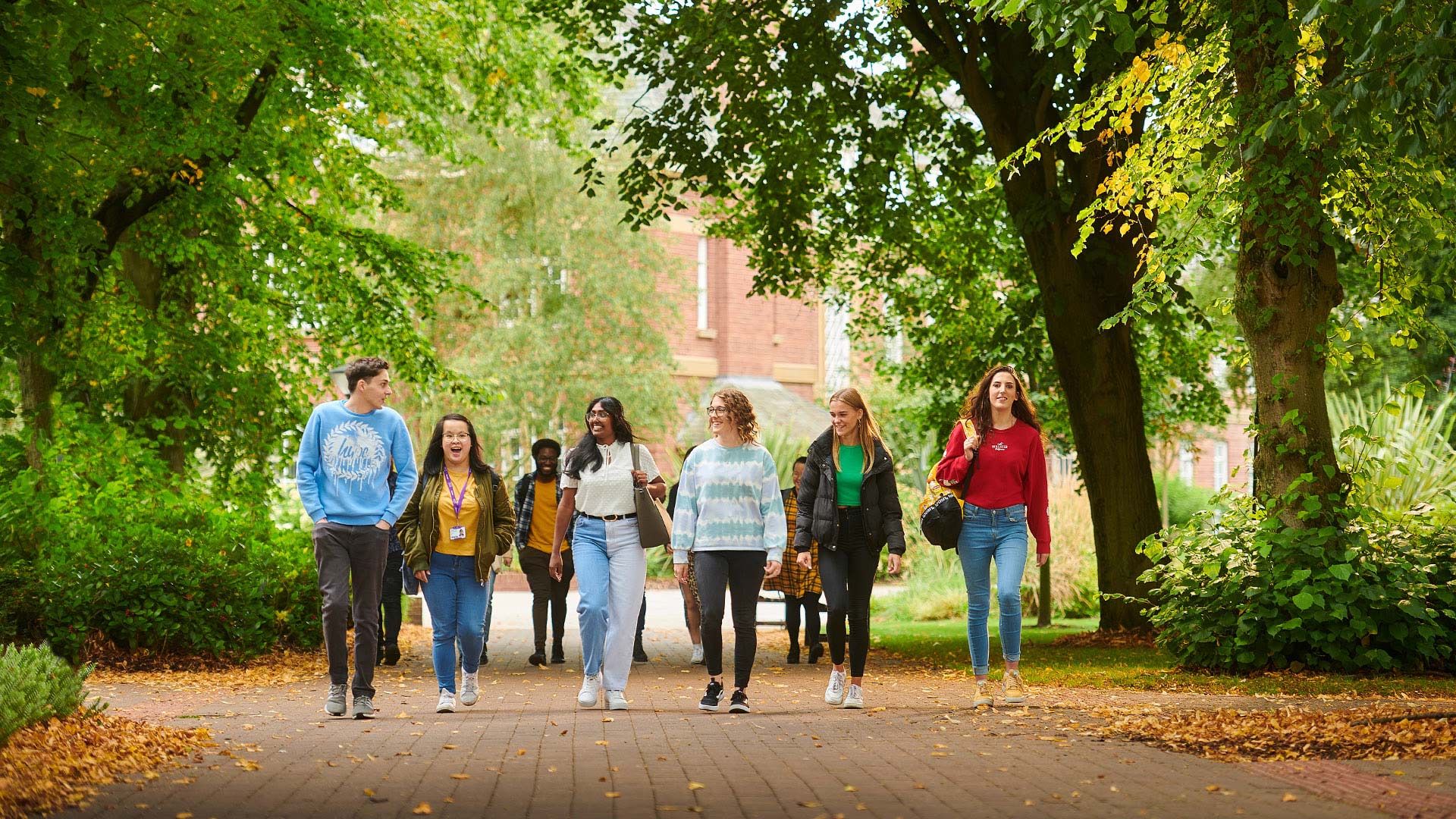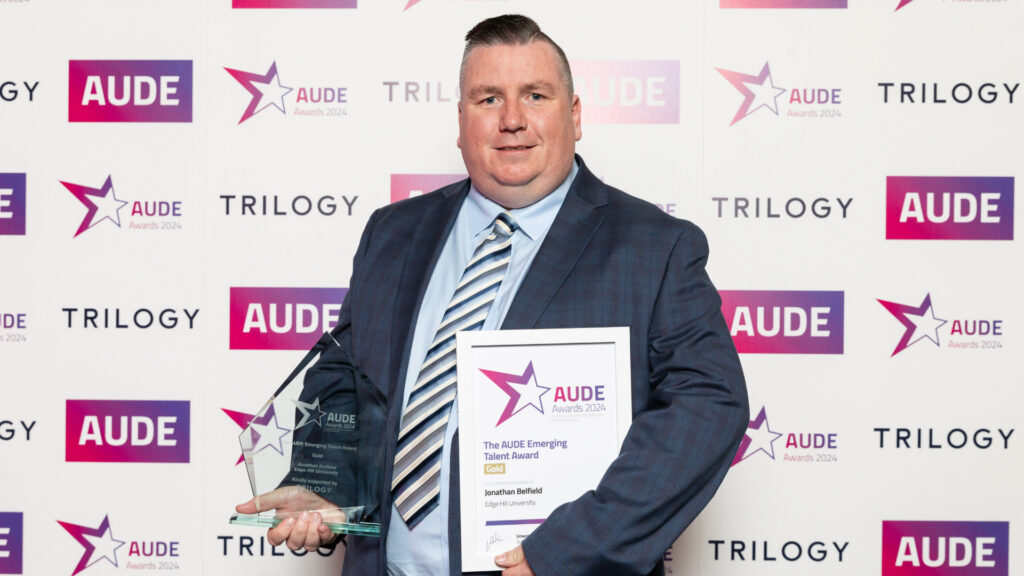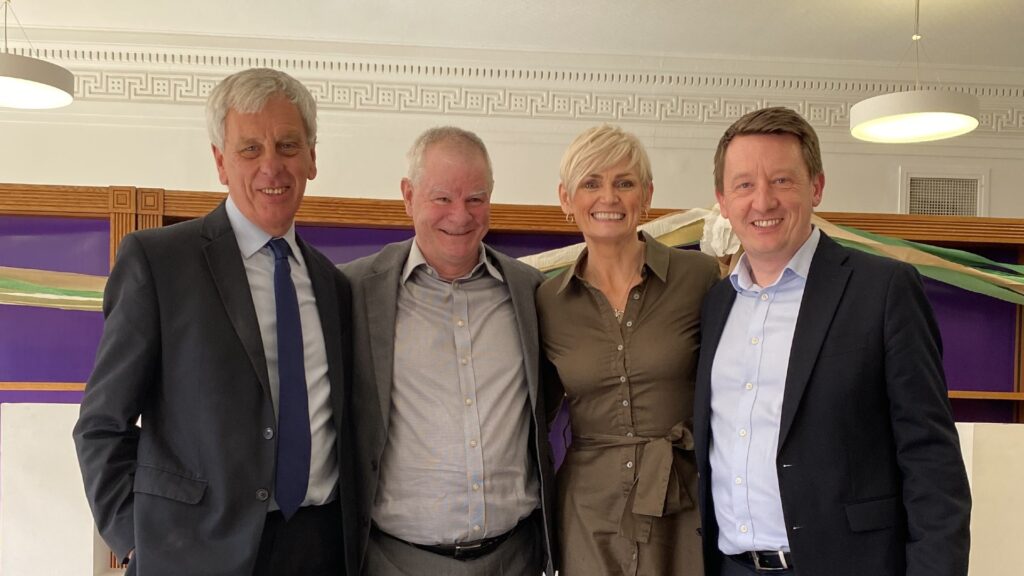
We know that university is a milestone for both you and your student. As a parent or supporter, you’ll likely want to help them navigate the application process as much as possible. So, we’ve put together this handy guide packed with everything you need to know to support your student with their higher education choices.
We’ll cover how you can support their research, deadlines and entry requirements, the UCAS application itself, and, most importantly, the personal statement, which some students find quite daunting. Read on to find out how you can help your student achieve their goals.
Support their research
The first and most important step for your student is choosing what and where to study. Students should begin their research early, around 18 months before they want to start their course. The following websites are a great place to compare what’s on offer:
Aside from subject and entry requirements, your student should also consider:
- What type of degree they want to study – is a foundation, vocational or STEM-based degree best for them? Do they have a specific career in mind?
- How the modules are assessed – do they prefer exams, coursework, presentations, or a combination of all three?
- Does the course carry accreditation with a professional body?
- How the course is structured – are there any optional or compulsory modules?
- Do they want to study at a campus or city-based university?
- Do they want to stay at home or move away? Would they prefer to commute or live in halls of residence or private accommodation?
Students can apply for up to five choices, so we recommend visiting as many universities as possible to help your student come up with a shortlist of their favourites. Open days and campus tours are a great way to get to know the place. And most universities offer parent-specific activities too that cover the practicalities of transitioning to higher education and how student finance works.
Get to know the deadlines and entry requirements
Knowing the key deadlines will help keep you all on track. UCAS application deadlines can vary depending on the university or course. For example, if your student wants a career in music, drama or dance, they could apply to a conservatoire (specialist institution), which may have different deadlines to most UCAS undergraduate programmes. Applications often close in October. And most medicine courses, like those available at Edge Hill, do as well.
Key dates to be aware of for 2024 entry:
Don’t forget to check entry requirements. Universities set their own unique entry requirements which can vary depending on the subject. It’s likely that the entry requirements will be converted into UCAS Tariff points. Essentially, UCAS Tariff points are a numerical value assigned to your student’s grades. These are in place to ensure your student has the right skills and knowledge required to meet the demands of the course. There’s a Tariff point calculator available on the UCAS website. This can be really useful for working out what your student’s grades equate to and to understand the entry requirements they need to make an informed decision.
Understanding UCAS
So far, they’ve done the research, made a shortlist and checked their eligibility. Now it’s time to apply. All university applications are made through the University and College Admissions Services (UCAS). With a maximum of five choices, students can apply to the same course at different universities or multiple courses at one university. If your student is interested in the same course at different universities, make sure they have the institution codes to hand (the institution code for Edge Hill is E42).
First, they’ll need to register via UCAS Hub. If your student is applying through their school or college, they’ll be given a ‘buzzword’ to link their application to their school. If they’re applying independently, they’ll have a few extra questions to answer. There are six main sections to the application, which we’ll run you through step by step:
- Personal details – this includes basic details like your student’s name, contact information and where they live.
- Choices – this is where your student adds their shortlist in order of preference. Only UCAS will be able to see the order in which they have listed their choices.
- Education – here they should provide details of schools they’ve attended, exam results gained throughout school, other courses and predicted grades.
- Employment – they should add their current or any previous employment, especially if it’s relevant to the course they’re applying for. They can also include details about any extracurricular activities they’ve participated in.
- Personal statement – this is the most important part of the application and the part your student will need to spend the most time on. It’s their chance to show off. Read more on this later in this feature.
- Reference – this should be a letter of recommendation written by a teacher, tutor, employer or careers adviser. Your student should request this in advance – allowing enough time for their referee to complete so it’s ready to submit with their application.
The application can be edited at any time before submission, so they can save their progress as they go until they’re happy it’s complete. It’s best to look at your student’s application before they hit ‘submit’ as UCAS and universities are unable to discuss the application with parents and supporters unless they have nominated access.
Personal statement advice for parents and supporters
The personal statement is the part of the application that students find the hardest to get right. After all, writing 4,000 characters (roughly a side of A4 paper) can seem quite daunting. But, like most things, the hardest part is getting started. It’s likely that they’ll have more than enough to talk about after this.
Many university courses don’t invite applicants for an interview, so their personal statement is your student’s only opportunity to impress their chosen universities and showcase what sets them apart from other applications to secure an offer. A well written and structured statement is important, so don’t be afraid to offer your help:
- Encourage them to think reflectively – suggest making a list of any work experience or extracurricular activities they could use as evidence to show what makes them a great student. What skills did they gain from their experiences that they can use on their course? Such as time management or communication.
- Look at sentence and paragraph structure – check whether it flows nicely by reading it out loud. It should have a punchy opening paragraph which shows their passion and understanding for the course, followed by their evidence to support this (ensure that this paragraph is suitable for all the courses your student has applied for). Next, they should write about themselves. This includes their achievements, their interests and any attributes that make them interesting. End with a concise line that leaves the reader knowing exactly what makes them a good fit for the course.
- Check it’s relevant – it’s not uncommon for applicants to go off topic or use language that doesn’t make sense. Make sure their statement is focused, remains on topic and is written clearly in plain English.
- Make sure it’s original – a personal statement needs to be exactly that. Personal. It should be an honest piece that reflects who they are and their passion for the subject. Not just what they think universities want to hear. UCAS use software to check for plagiarism too so that’s something they need to be aware of.
- Proofread – having a fresh pair of eyes read over something is invaluable as you’ll be able to pick up on simple mistakes they may have missed. The best personal statements have usually been redrafted multiple times to make sure it’s right. Check for grammar, punctuation, and spelling, and consider restructuring sentences so it’s concise.
Remember that just being there for them if they need you could be all the support your student needs to produce a successful personal statement.
Receiving offers
UCAS will begin processing your student’s application as soon as they’ve received it and will start alerting universities that an application has been made. Your student will typically receive a confirmation email within 48 hours, including their Personal ID, outlining how they can track the progress of their application via UCAS Hub.
As soon as universities start making decisions your student will receive an email notifying them to check their application. They will receive one of the following:
- Unconditional offer – this means they meet the entry requirements, and the place is theirs if they want it.
- Conditional offer – this means they have a place on the course providing they meet certain conditions, like exam results.
- Unsuccessful – this means that they have not been offered a place on the course.
- Withdrawn – this means the choice has been withdrawn by the university or your student. If done by the university, they will get in touch to explain why.
Once your student has received decisions from all their university/course choices, they will need to reply to them by the deadlines provided. They may also be invited to attend an interview as part of the selection process for some courses. Then, they need to select which offers they want to make their firm and insurance choices.
- Firm Choice – this will be their first-choice university which they want to go to.
- Insurance Choice – this is their ‘back up’ option in case your student doesn’t meet the conditions of their firm choice. The insurance choice may have less demanding conditions than their firm choice.
Prepare a Plan B
Life doesn’t always go to plan. And it doesn’t hurt to be prepared just in case. University places are competitive meaning some students might not get the offers they’d hoped for. Or alternatively your student may have changed their mind about what or where they want to study. Or perhaps they’re no longer interested in the offers they’ve received. So what happens then? Here are a few options they could consider:
- UCAS Extra – if your student has decided to go to university after the January UCAS deadline, they can still apply through UCAS Extra. UCAS Extra is open from 23 February 2024 until 30 June 2024. UCAS Extra is another chance for your student to gain a university place without waiting for Clearing. If they’re not holding any offers, or have declined the offers they’ve already received, they’ll be able to add another choice for free.
- Clearing – opens on 5 July 2024 and closes on 17 October 2024. Clearing offers students a second chance to secure a place at university. Your student may find themselves in Clearing if they’ve changed their mind about their choices, have achieved better grades than expected, or if they didn’t receive the grades they expected to match the conditions of their offer. Read our Clearing advice for parents and supporters to find out how Clearing works and how you can help your student in this situation.
- Defer for a year – a year out from studying will give your student the opportunity to reflect on what kind of education and career they want to pursue. A chance to discover themselves, grow their confidence, gain new skills, and focus on their future. They could complete an internship, volunteer, work, or travel. All will give them exciting new experiences and a fresh perspective.
- Alternatives to university – your student may decide that university isn’t right for them. A good alternative is completing an apprenticeship if they know what type of career they want to pursue. Apprenticeships combine working in industry, training, and study without any fees and are a way to ‘earn while they learn.’
Whatever happens, it’s important you remain calm and take a positive approach. Whichever path they take is a step towards achieving their career goals and you’ll be able to watch them embark on an exciting new chapter of their life.
We hope you’ve found our application advice useful as your student takes their next step. We also have a guide that helps you prepare your student for university, including applying for student finance and choosing their accommodation. If your student is interested in studying with us, encourage them to share their details to receive exclusive content and useful information about all things Edge Hill.
November 30, 2022


